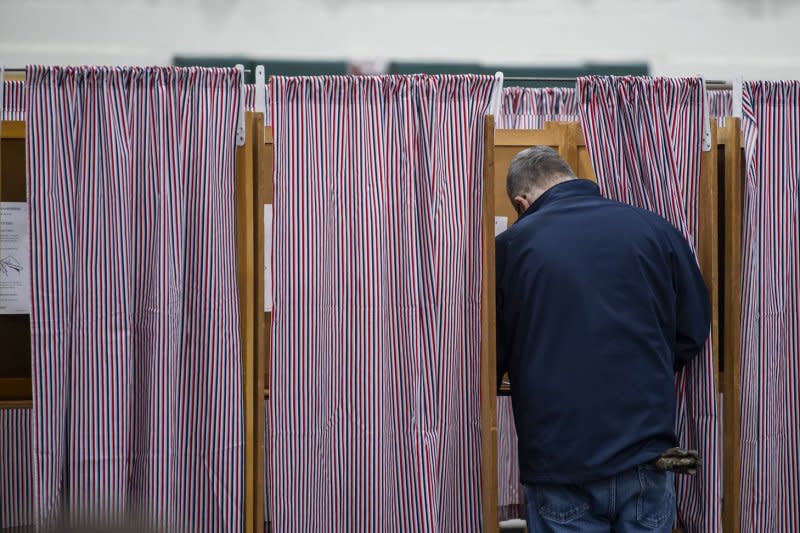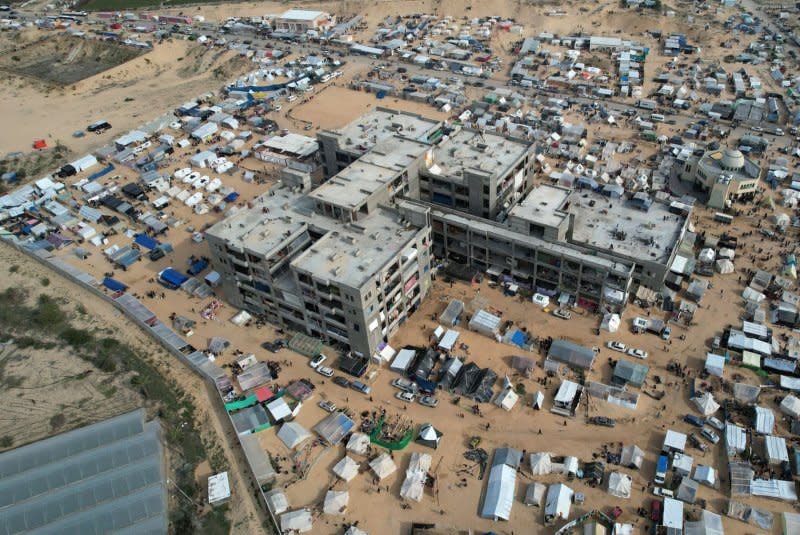Life in America is becoming a continuous nightmare

- Oops!Something went wrong.Please try again later.
- Oops!Something went wrong.Please try again later.
One advantage of a nightmare is waking up. In America, life is becoming one continuous nightmare. And waking up does not seem to be an option.
The forthcoming presidential election is one nightmare. Some three-quarters of Americans do not want either Donald Trump or Joe Biden as president. Last week was indeed a nightmare for both.
At both the National Rifle Association meeting in Indiana and then in a South Carolina rally, Trump spoke for two hours, with many of his comments unaffected by truth or fact. Among his stunning revelations, one stood out that provoked outrage and shock here and in Europe. As president, Trump recalled this statement about NATO.
Speaking to one leader, Trump vented: "You didn't pay? You're delinquent? Yes, let's say that happened. No, I would not protect you. In fact, I would encourage them [Russia] to do whatever the hell they want. You gotta pay."
Whether if elected Trump would leave NATO is arguable. Congress has passed a resolution preventing such a withdrawal without its approval. Yet, given how compliant Republicans in Congress have been to Trump's whims, uncertainties abound. Ironically, do not be surprised if Trump reverses course.

Trump could cynically use that threat as a means to compel greater NATO spending on its defense. Many of his followers would regard that as a shrewd move. And that could encourage others to disregard his most outrageous statements in terms of promising to end the war in Ukraine in 24 hours or to exact retribution on those who oppose him.
But compared to Biden, Trump may have enjoyed a walk in the park. The devastating report of special counsel Robert Hur on Biden's handling of classified material recommended that no charges were warranted.

However, the rationale that Biden was "elderly" and had memory loss. The report described the 81-year-old Democrat's memory as "hazy," "fuzzy," "faulty," "poor" and having "significant limitations." And it cited that Biden could not recall when his son Beau died, causing a fiery reaction from the White House and first lady, as well as the president.
Put another way, Biden's main problem is that politics is visual and visceral, not rational. Biden looks and acts old. Memory loss is not always a loss in intellect or judgment. Age can bring wisdom. Henry Kissinger looked old. No one questioned his intellect. Biden is not Kissinger. But, he is not Trump. Yet, this report was very damaging, although November is a long way away.

Internationally, the Israeli offensive in Gaza has now started on the Rafah Gate, where a reported 1.4 million Palestinian refugees have fled -- a nightmare. Israeli Prime Minister Benjamin Netanyahu has refused to accept a cease-fire or relent on the aim to destroy Hamas. He has also said that safe passage zones have been opened for Palestinians to move north. But where would these refugees find shelter, food, water and medical facilities, most of which have been destroyed?
A cleavage between Washington and Jerusalem is widening. If the Rafah offensive leads to substantial civilian casualties and more destruction, will the United States be forced to put greater pressure on Israel for a cease-fire, or to modify its offensive? And if so, would a serious rift arise?

Likewise, the war in Ukraine is not going well for Kyiv. Despite its extraordinary and courageous defense, Russia's overwhelming advantages in size, population and military power have taken their toll. The Ukrainian Army is suffering from attrition and lack of ammunition and other military equipment. While Europe and the United States are increasing production facilities, it will take time to replace.
President Volodymyr Zelensky has fired his commander, Valery Zaluhzny, presumably over the general's request for mobilizing more troops and possibly raising the draft age. Currently, Ukraine drafts men from 26 to 60 such that the average age of its soldiers is 40. And Zelensky seems reluctant to lower it substantially.

And these are only a few of the nightmares. Massive dysfunction in Congress and the border crisis do not disappear in the morning. As the presidential election draws nearer, do not expect these nightmares lessening or becoming less frightening.
What to do? Sadly, no solutions or cures are obvious. The only salvation is that the nation is capable of tolerating a great deal of ruin and that its economy will be resilient and strong enough to get through these nightmares. And perhaps one day, a few leaders will emerge who will provide enough common sense to wake the nation up. Until then, open the aspirin bottles.
Harlan Ullman is UPI's Arnaud de Borchgrave Distinguished Columnist, a senior adviser at Washington's Atlantic Council, the prime author of "shock and awe" and author of "The Fifth Horseman and the New MAD: How Massive Attacks of Disruption Became the Looming Existential Danger to a Divided Nation and the World at Large." Follow him @harlankullman. The views and opinions expressed in this commentary are solely those of the author.
